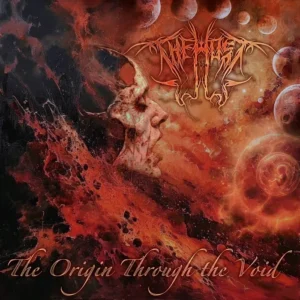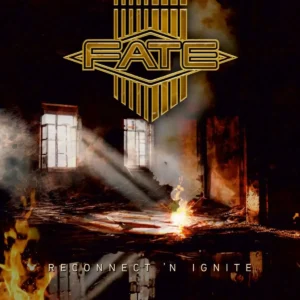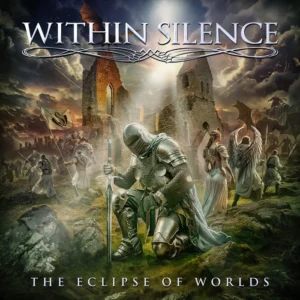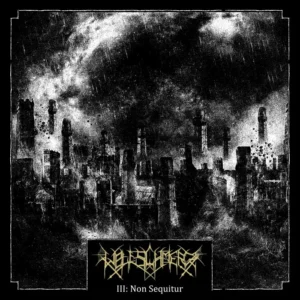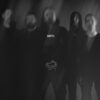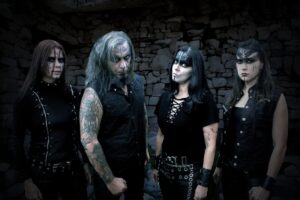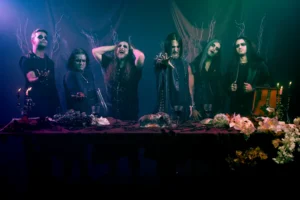Afterglow
JD Miller
•
September 10, 2019
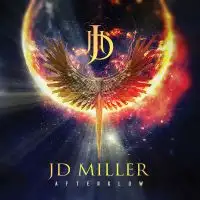
JD MILLER is releasing their third studio album, "Afterglow", on Oct. 18, 2019 after a tour with SOTO. A powerhouse of symphony and some interesting elements thrown in, I liked this album. However, there were parts that became monotonous, and while the songs were solid, they blended in with each other.
We open with "Inside a Dream," a melodic, electronic intro, including a robotic voice at the beginning. It blends Electronic and Symphonic Metal in a way that doesn't sound artificial. Plus, the vocals are sweet and haunting in a way that I haven't heard except in classic Post-Punk. And the way the chorus pumps up was a nice surprise, however, I'm not a big fan of the reverberation in retrospect. It makes it sound fuzzy, but that could be part of the aesthetic. It's an excellent, promising start to the rest of the album and I already can't wait to hear more.
"Game of Love" starts with some electronic ambiance that I've only heard in contemporary R&B, so it's surprising to hear it lead into a traditional, symphonic intro. The vocals are more traditional for Symphonic Metal as well. It's a well-written, pumped-up song, but it's more traditional than the last song. It features some nice harmonies and intensity that keep the song going.
"Inception" starts off with some higher notes juxtaposed with lower, pronounced drumbeats. The verse quiets; I'm not sure if I like the whispered style of the vocals here, but they're short, going into a melodic, strong verse. It implements some pop-electronica elements, namely the sudden quiet moments, and the synthetic chorus that's upbeat and inspiring. Altogether, it's a soaring song that makes the upbeat elements fly, giving the listener that lightweight feeling that's a hallmark of the genre.
"Icarus" is more anthemic and lower in tone. However, the chorus implements the flight theme that should go with a sing with this mythical title. I enjoyed how they mixed the soaring elements with an ominous riff foretelling the legendary figure's doom. Juxtaposition of the melodies, the tense verse/solo and the soaring chorus was a great way to go here and it works really well.
"Light Your Fire" beings with some electronic ambiance and narration, like it's revving up for a race. The melody then soars a lot like the last song. The verse slows until the second half, when it pounds you again with the bombast that is Symphonic Metal. It seems like a continuation of the last song, where the hero fell; here, he's getting up and facing the challenge. The pounding drums in the second verse and the outro reinforces this idea.
"In the Afterglow" is a nine-minute ballad featuring a lower melody and pounding drums. The music still soars, but at a slower pace; while it's slower, it's in no way soft. There's a great note sequence in the chorus and a really nice, heavy guitar motif throughout the song. The song goes soft before going into a proper guitar solo. The melody change keeps the song fresh as it subtly shifts to a new movement: a faster, heavy part of the song that functions as a response to the slower first part.
"The Desire" is a short, hard-hitting song written to get us back into the rhythm of the album. It's punchy from the start, and like most of the songs on this album, ramps it up halfway through the first verse into the height of Symphonic Metal intensity. The guitars are a little tuned-down for my taste in the solo and make the song sound weaker. They get clearer and more solid as the solo goes on, though.
"Burned Alive" starts high and hard, with a squealing tuned-down guitar in the intro. The choir elements in the verse are understated, but I can hear them. The melodic rhythm is interesting and gallops through the song. Other than that, the song follows the rest of the album's formula pretty well: fast, hard-hitting, but rather than bringing up the intensity halfway through the first verse, they bring the intensity at the start.
"The Answer" starts with some symphonic staccato before entering the vocals. The music is higher and faster than the last song. I liked the slow-down choir elements in the second verse before the chorus ramped up. The speed-up in the second chorus utilizing the choir was nice as well, and I enjoyed the Thrash guitar solo, although I thought it was a little short.
"Devilstorm" is slightly slower, but more anthemic than the last song. It uses the same choir elements, same tingling symphonic elements in the chorus: the high piano notes. It's a simple but solid song. There's an interesting, subliminal-sounding snippet at the end that caught my interest, and it's a good technique to employ going into the closer.
"Auburn Skies" is a short song for a closing track; I expected another eight-minute ballad. Interestingly, it features a long guitar solo after the first minute, not long enough to be a solo, but enough to be noteworthy. It's a slow ballad, and the way it's constructed reminds me of late '80s power ballads. It's a nice song, but I'm not sure if it is a fitting conclusion; I would have liked to see something that pulled all the stops and employed the tricks we'd been hearing throughout the album.
Overall, the formula for these songs is mostly similar: a punchy intro, halfway through the first verse, the power is turned up to 11 with some sudden stops and subtle shifts thrown in. The opening track is easily my favorite, combining multiple musical styles to create something unique. After that, the tracks were solid, but formulaic. If you're not into a lot of changing movements or progressive elements in your music but enjoy Power Metal that's not 100 percent stuck in the '80s, this is a great album for you.
9 / 10
Almost Perfect
Songwriting
Musicianship
Memorability
Production

"Afterglow" Track-listing:
1. Inside a Dream
2. Game of Love
3. Inception
4. Icarus
5. Light Your Fire
6. In the Afterglow
7. The Desire
8. Burned Alive
9. The Answer
10. Devilstorm
11. Auburn Skies
JD Miller Lineup:
Peter Halldén - Vocals
Emil Eriksson - Drums
Elias Fröjd - Guitars
Chris David - Bass Guitar
More results...


